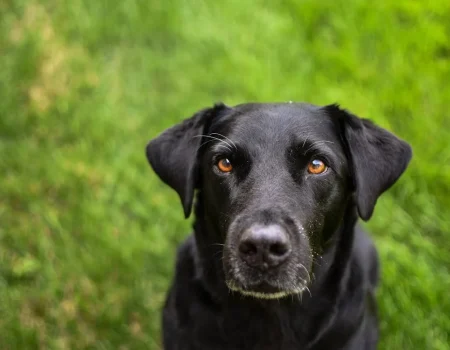Bearded Dragons are friendly and outgoing and make great additions to any family. The beard is used for communication and territorial purposes.
As omnivores, bearded dragons eat both plants and animals. Insects, small mammals, and natural plants make up their food. Bearded dragons can be fed various foods in captivity, including crickets, mealworms, earthworms, pinkie mice, and vegetables.
Bearded dragons are native to Australia and can be found in various habitats, including deserts, rocky outcrops, and forests. Because they are opportunistic eaters, they will consume almost everything. Bearded dragons are excellent pets for adults and children because they require little maintenance.
In the following paragraphs, we will cover all you need to know about feeding parsley to your bearded dragons, including whether or not this is a healthy practice. Well, keep reading!
What do Bearded Dragons Eat?
Bearded Dragons are omnivores, and their diet consists mainly of insects in the wild. They can be fed various foods in captivity, including crickets, mealworms, earthworms, pinkie mice, and vegetables.
A well-balanced diet for a bearded dragon should consist of:
- Insects: 75%
- Vegetables: 20%
- Mealworms and earthworms can be fed live or frozen/thawed.
- Pinkie mice should only be fed live.
Bearded dragons typically eat every day. However, just like other exotic pets It is important to offer food at the same time each day so that your bearded dragon knows when to expect food.
Offering various foods will not only ensure that your bearded dragon is getting all the nutrients they need, but it will also make mealtime more interesting for them.
Can Bearded Dragons Eat Parsley?
Yes, bearded dragons can eat parsley. Vitamins A, C, iron, and calcium are all abundant in parsley, which is also a great source of other vitamins and minerals.
It is a good source of fiber as well. Feeding your bearded dragon various vegetables will ensure that they get all the nutrients they need.
Parsley can be fed fresh, frozen, or dried. It can be offered as a treat or mixed in with other vegetables. When feeding parsley to your bearded dragon, chop it up into small pieces so they can quickly eat it.
Parsley has an excellent calcium-to-phosphorus ratio of 3.2:1, making it beneficial for bearded dragons, especially breeding females who require higher calcium levels. This ratio is important as healthy adult bearded dragons need a calcium/phosphorus ratio of approximately 1.5:1 to 2:1 for optimal health.
Can Baby Bearded Dragons Eat Parsley?
Parsley is safe for baby bearded dragons to eat just like it is for adults, but you should still use caution for the reasons we outlined above.
Although parsley has a lot of calcium, its high oxalate content prevents this from being the whole picture of its calcium content.
Due to their rapid growth in the first few months of life, baby bearded dragons require a diet heavy in calcium and protein.
Can Bearded Dragons Eat Parsley Seeds?
No, bearded dragons should not eat parsley seeds. Parsley seeds pose a choking hazard and can cause digestive problems if ingested. Feeding your bearded dragon chopped-up parsley leaves is a safer option.
Can Bearded Dragons Eat Cooked Parsley?
Yes, bearded dragons can eat cooked parsley. Cooked parsley can be offered as a treat or mixed in with other vegetables. When feeding cooked parsley to your bearded dragon, chop it up into small pieces so they can quickly eat it.
Parsley contains about 84% water, which helps with hydration in bearded dragons. Proper hydration is crucial for these reptiles, as it can prevent health issues like impaction and constipation.
Do Bearded Dragons Like Parsley?
Some bearded dragons may like the taste of parsley, while others may not be as fond of it. If your bearded dragon is not interested in eating parsley, try mixing it with other vegetables or offering it as a treat.
Can Bearded Dragons Eat Different Types of Parsley?
Yes, bearded dragons can eat different types of parsley, including flat-leaf parsley and curly parsley. Both types of parsley are safe for bearded dragons to eat and are a good source of vitamins and minerals.
Do Bearded Dragons Eat Parsley Flowers?
Yes, bearded dragons can eat parsley flowers. Parsley flowers can be fed fresh, frozen, or dried. They can be offered as a treat or mixed in with other vegetables. When feeding parsley flowers to your bearded dragon, chop them up into small pieces so they can quickly eat them.
Do Bearded Dragons Eat Parsley Roots?
Parsley roots are safe for bearded dragons to eat and are a good source of vitamins and minerals. Parsley roots can be fed fresh, frozen, or dried.
How to give Parsley to Bearded Dragons?
If you are selecting parsley from a growing plant on your window cill, wash it well first. To ensure that the greens and vegetables you add to the salad bowl are clean and germ-free, it’s a good idea to do this with all of them.
It can also be offered as a treat or mixed in with other vegetables. When feeding parsley to your bearded dragon, chop it up into small pieces so they can quickly eat it.
When Should Bearded Dragons Eat Parsley?
Bearded dragons are able to eat parsley at any hour of the day. To ensure that your bearded dragon consumes all of the necessary vitamins and minerals, it is a smart idea to provide it with a wide range of fresh vegetables just like rabbits and guinea pigs.
Do Bearded Dragons Need Parsley?
Parsley is not a necessary part of a bearded dragon’s diet, but it is a good source of vitamins and minerals. Feeding your bearded dragon various vegetables will ensure that they get all the nutrients they need.
How Much Parsley Can a Bearded Dragon Eat?
Only a tiny portion of your bearded dragon’s diet should consist of parsley. A general rule of thumb is to offer vegetables in proportion to the size of your bearded dragon.
For example, if your bearded dragon is 10 inches long, it should only be offered 1/2 cup of vegetables per day.
It is recommended to feed adult bearded dragons 2-3 sprigs of parsley (or about 6-8 small leaves) 2-3 times per week. For juvenile dragons, only 1-2 small leaves should be offered once a week to avoid potential oxalate toxicity.
Consult your veterinarian if you’re unclear how much to feed your bearded dragon. They can assist you in developing a feeding schedule that is suitable for the size, age, and amount of activity of your bearded dragon.
Benefits Of Parsley For Bearded Dragons’ Health
Parsley is an excellent source of vitamins and minerals, including vitamins A, C, iron, and calcium. Feeding your bearded dragon various vegetables will ensure that they get all the nutrients they need.
Parsley is also known to have many health benefits. Lets we discuss some of them:
- Parsley is a good source of antioxidants
- Parsley has anti-inflammatory properties
- Parsley can help to improve digestion
- Parsley can help to detox the body
- The immune system may benefit from the use of parsley.
Parsley is an excellent addition to a bearded dragon’s diet and can offer many health benefits.
Parsley is a perfect choice if you’re searching for a strategy to increase the number of vitamins and minerals in your bearded dragon’s diet.
Can Bearded Dragons Consume Parsley Without Risking Health?
Parsley is safe for bearded dragons to eat and is a good source of vitamins and minerals. However, its high oxalate content should not be the only source of calcium in your bearded dragon’s diet. Feeding your bearded dragon various vegetables will ensure that they get all the nutrients they need.
What is the Risk of feeding Bearded Dragons With Parsley?
Too much parsley in the food of your bearded dragon can severely reduce the amount of calcium it can absorb, causing brittle bones and a condition known as Metabolic Bone Disease (MBD). Because bearded dragons struggle to consume adequate calcium, MBD is frequently seen in them.
Conclusion
If provided infrequently to your pet, parsley is very beneficial. Parsley can be given little food once a week to once a month. It has a low sugar content, water, calcium, and vitamins. However, the dragon may be at Risk due to the high oxalate content.
Parsley is safe for bearded dragons to eat and is a good source of vitamins and minerals. However, its high oxalate content should not be the only source of calcium in your bearded dragon’s diet.
Feeding your bearded dragon various vegetables will ensure that they get all the nutrients they need.
In other words, it’s usually best to introduce a new meal slowly and in small amounts at first. This is always true when trying new food. Many thanks for reading! … I’ll be back soon with more information.
References
Can Bearded Dragons Eat Parsley? A Detailed Guide
Discover the Benefits of Feeding Your Bearded Dragon Parsley!
Can Bearded Dragons Eat Parsley?
Can Bearded Dragons Eat Parsley? Our Vet Answers
Can Bearded Dragons Eat Parsley?
Disclaimer
This content on Bagrica is for informational purposes only. Consult a professional for pet care or farming advice. Bagrica is not liable for any actions taken based on this information.







No Comment! Be the first one.